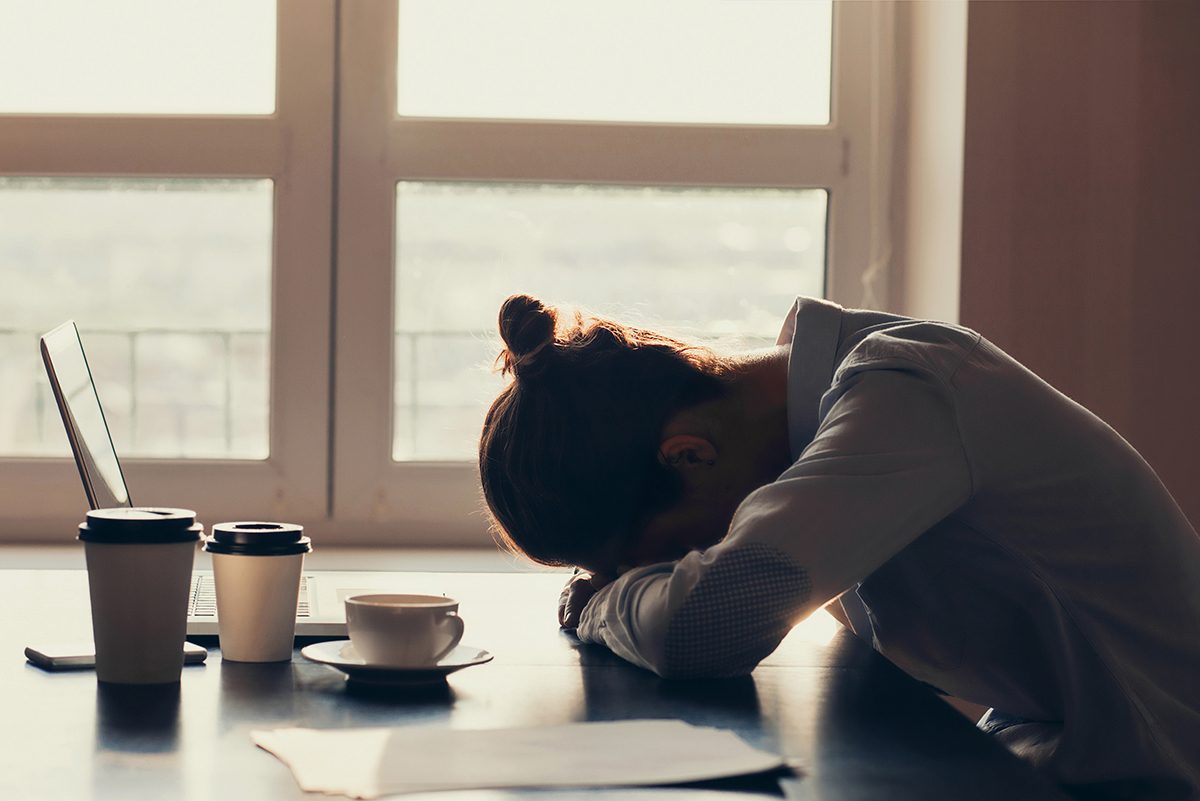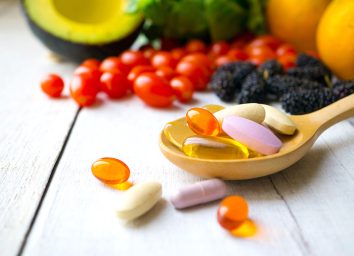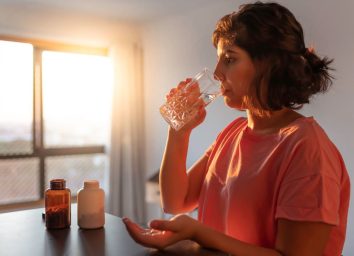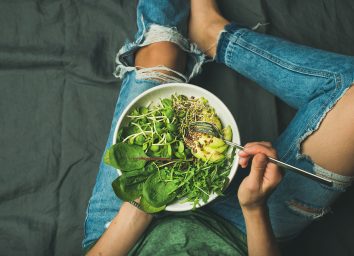A Vitamin B Deficiency Might Be the Reason You're Tired All the Time

Have you ever felt so fatigued that you struggle to get out of bed and stay awake during the day? Or maybe you feel completely wiped of energy after doing basic things like climbing a few stairs or carrying groceries from the car to the front door? There are many reasons why one may feel fatigued, and one of the most common is a vitamin or mineral deficiency. Having a deficiency in vitamin B, for example, can cause extreme fatigue.
To speak more about the symptoms and complications of vitamin B deficiency, we asked Cedrina Calder, MD, Preventive Medicine Doctor, and health and wellness expert, and Sydney Greene, MS, RD, to lend insight.
What are some symptoms of vitamin B deficiency?
"The most common vitamin B deficiency is vitamin B12 deficiency," says Calder.
There are eight different kinds of B vitamins:
- B1—Thiamine
- B2—Riboflavin
- B3—Niacin
- B5—Pantothenic Acid
- B6—Pyridoxine
- B7—Biotin
- B9—Folate
- B12—Cobalamin
Deficiency in vitamin B12 can cause various health complications, too, like:
- Extreme fatigue, shortness of breath, rapid heart rate. Calder says this can all occur because a lack of B12 can lower red blood cell count.
- Numbness, tingling or burning in arms, legs, hands, and feet. Insufficient supplies of B12 can negatively affect the nervous system.
- Psychological changes. Calder says anything from irritability to memory loss and even depression can occur if B12 levels are too low.
- Sores or ulcers in the mouth. Greene says that these sores can develop in the corner of the mouth as a result of inadequate B12 levels. Tongue soreness is another common symptom.
Who is more prone to vitamin B deficiency?
There are several groups of people who are prone to vitamin B12 deficiency.
- Elderly people. "As we age, we lose the ability to absorb vitamin B12 from food," says Greene. "Because of this, the elderly population is likely to be deficient in B12."
- Vegans and vegetarians. B12 is only found in meat and animal by-products. Plant-based eaters are more prone to vitamin B12 deficiency because their diet lacks or is completely void of that. "In addition, vegan or vegetarian women who are pregnant or breastfeeding must supplement with vitamin B12 to avoid deficiency in the fetus and infant," says Calder.
- People who have gastrointestinal disorders or have had surgery on their stomach or intestine. Calder says these groups of people are automatically more susceptible to vitamin B12 deficiency because they may have issues absorbing it.
- Chronic heavy drinkers. Greene says heavy drinkers can be deficient in any B vitamins, as alcohol affects both metabolism and nutrient absorption.
What are some common ways you can boost vitamin B levels?
Both Calder and Greene suggest getting more of the vitamin by eating foods that are naturally rich in it.
"These foods include meat, fish, poultry, dairy, and eggs," says Calder. "In addition, many grains and cereals are fortified with B vitamins."
Of course, if your diet excludes all animal sources, then you'll want to take a B12 supplement. Greene says she recommends her vegan female clients take a B complex that also contains iron. The dietitian adds that birth control has been shown to deplete vitamins B2, B6, and B12.
"I always recommend that my female clients taking oral contraceptives speak to their doctor about starting a B complex supplement, especially if they are experiencing sudden low energy or mood swings," says Greene.
Hopefully, now you have a better understanding of what vitamin B deficiency is, specifically vitamin B12.








